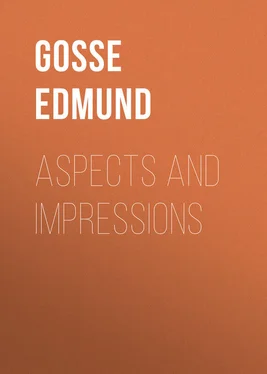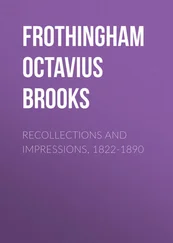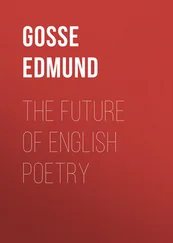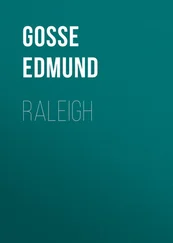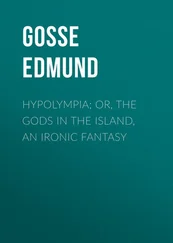Edmund Gosse - Aspects and Impressions
Здесь есть возможность читать онлайн «Edmund Gosse - Aspects and Impressions» — ознакомительный отрывок электронной книги совершенно бесплатно, а после прочтения отрывка купить полную версию. В некоторых случаях можно слушать аудио, скачать через торрент в формате fb2 и присутствует краткое содержание. Жанр: Критика, foreign_antique, foreign_prose, на английском языке. Описание произведения, (предисловие) а так же отзывы посетителей доступны на портале библиотеки ЛибКат.
- Название:Aspects and Impressions
- Автор:
- Жанр:
- Год:неизвестен
- ISBN:нет данных
- Рейтинг книги:4 / 5. Голосов: 1
-
Избранное:Добавить в избранное
- Отзывы:
-
Ваша оценка:
- 80
- 1
- 2
- 3
- 4
- 5
Aspects and Impressions: краткое содержание, описание и аннотация
Предлагаем к чтению аннотацию, описание, краткое содержание или предисловие (зависит от того, что написал сам автор книги «Aspects and Impressions»). Если вы не нашли необходимую информацию о книге — напишите в комментариях, мы постараемся отыскать её.
Aspects and Impressions — читать онлайн ознакомительный отрывок
Ниже представлен текст книги, разбитый по страницам. Система сохранения места последней прочитанной страницы, позволяет с удобством читать онлайн бесплатно книгу «Aspects and Impressions», без необходимости каждый раз заново искать на чём Вы остановились. Поставьте закладку, и сможете в любой момент перейти на страницу, на которой закончили чтение.
Интервал:
Закладка:
The critics of her own time were satisfied that she had done this, and that she had founded the psychological novel. There was much to be said in favour of such an opinion. In the later books it is an undeniable fact that George Eliot displays a certain sense of the inevitable progress of life which was new. It may seem paradoxical to see the peculiar characteristics of Zola or of Mr. George Moore in Middlemarch , but there is much to be said for the view that George Eliot was the direct forerunner of those naturalistic novelists. Like them, she sees life as an organism, or even as a progress. George Eliot in her contemplation of the human beings she invents is a traveller, who is provided with a map. No Norman church or ivied ruin takes her by surprise, because she has seen that it was bound to come, and recognizes it when it does come. Death, the final railway station, is ever in her mind; she sees it on her map, and gathers her property around her to be ready when the train shall stop. This psychological clairvoyance gives her a great power when she does not abuse it, but unfortunately from the very first there was in her a tendency, partly consequent on her mental training, but also not a little on her natural constitution, to dwell in a hard and pedagogic manner on it. She was not content to please, she must explain and teach as well.
Her comparative failure to please made its definite appearance first in the laboured and overcharged romance of Romola . But a careful reader will detect it in her earliest writings. Quite early in Amos Barton , for instance, when Mrs. Hackit observes of the local colliers that they "passed their time in doing nothing but swilling ale and smoking, like the beasts that perish," the author immediately spoils this delightful remark by explaining, like a schoolmaster, that Mrs. Hackit was "speaking, we may presume, in a remotely analogical sense." The laughter dies upon our lips. Useless pedantry of this kind spoils many a happy touch of humour, Mrs. Poyser alone perhaps having wholly escaped from it. It would be entirely unjust to accuse George Eliot, at all events until near the end of her life, of intellectual pride. She was, on the contrary, of a very humble spirit, timorous and susceptible of discouragement. But her humility made her work all the harder at her task of subtle philosophical analysis. It would have been far better for her if she had possessed less of the tenacity of Herbert Spencer and more of the recklessness of George Sand. An amusing but painful example of her Sisyphus temper, always rolling the stone uphill with groans and sweat, is to be found in her own account of the way she "crammed up" for the composition of Romola . She tells us of the wasting toil with which she worked up innumerable facts about Florence, and in particular how she laboured long over the terrible question whether Easter could have been "retarded" in the year 1492. On this, Sir Leslie Stephen – one of her best critics, and one of the most indulgent – aptly queries, "What would have become of Ivanhoe if Scott had bothered himself about the possible retardation of Easter? The answer, indeed, is obvious, that Ivanhoe would not have been written."
The effect of all this on George Eliot's achievement was what must always occur when an intellect which is purely acquisitive and distributive insists on doing work that is appropriate only to imagination. If we read very carefully the scene preceding Savonarola's sermon to the Dominicans at San Marco, we perceive that it is built up almost in Flaubert's manner, but without Flaubert's magic, touch by touch, out of books. The author does not see what she describes in a sort of luminous hallucination, but she dresses up in language of her own what she has carefully read in Burlamacchi or in Villari. The most conscientious labour, expended by the most powerful brain, is incapable of producing an illusion of life by these means. George Eliot may even possibly have been conscious of this, for she speaks again and again, not of writing with ecstasy of tears and laughter, as Dickens did, but of falling into "a state of so much wretchedness in attempting to concentrate my thoughts on the construction of my novel" that nothing but a tremendous and sustained effort of the will carried her on at all. In this vain and terrible wrestling with incongruous elements she wore out her strength and her joy, and it is heart-rending to watch so noble a genius and so lofty a character as hers wasted in the whirlpool. One fears that a sense of obscure failure added to her tortures, and one is tempted to see a touch of autobiography in the melancholy of Mrs. Transome (in Felix Holt ), of whom we are told that "her knowledge and accomplishments had become as valueless as old-fashioned stucco ornaments, of which the substance was never worth anything, while the form is no longer to the taste of any living mortal."
The notion that George Eliot was herself, in spite of all the laudation showered upon her, consciously in want of some element essential for her success is supported by the very curious fact that from 1864 to 1869, that is to say through nearly one-quarter of her whole literary career, she devoted herself entirely to various experiments in verse. She was so preternaturally intelligent that there is nothing unlikely in the supposition that she realized what was her chief want as a writer of imaginative prose. She claims, and she will always be justified in claiming, a place in the splendid roll of prominent English writers. But she holds it in spite of a certain drawback which forbids her from ever appearing in the front rank as a great writer. Her prose has fine qualities of force and wit, it is pictorial and persuasive, but it misses one prime but rather subtle merit, it never sings. The masters of the finest English are those who have received the admonition Cantate Domino! They sing a new song unto the Lord. Among George Eliot's prose contemporaries there were several who obeyed this command. Ruskin, for instance, above all the Victorian prose-writers, shouts like the morning-star. It is the peculiar gift of all great prosaists. Take so rough an executant as Hazlitt: "Harmer Hill stooped with all its pines, to listen to a poet, as he passed!" That is the chanting faculty in prose, which all the greatest men possess; but George Eliot has no trace of it, except sometimes, faintly, in the sheer fun of her peasants' conversation. I do not question that she felt the lack herself, and that it was this which, subconsciously, led her to make a profound study of the art of verse.
She hoped, at the age of forty-four, to hammer herself into poetry by dint of sheer labour and will-power. She read the great masters, and she analysed them in the light of prosodical manuals. In 1871 she told Tennyson that Professor Sylvester's "laws for verse-making had been useful to her." Tennyson replied, "I can't understand that," and no wonder. Sylvester was a facetious mathematician who undertook to teach the art of poetry in so many lessons. George Eliot humbly working away at Sylvester, and telling Tennyson that she was finding him "useful," and Tennyson, whose melodies pursued him, like bees in pursuit of a bee-master, expressing a gruff good-natured scepticism – what a picture it raises! But George Eliot persisted, with that astounding firmness of application which she had, and she produced quite a large body of various verse. She wrote a Comtist tragedy, The Spanish Gypsy , of which I must speak softly, since, omnivorous as I am, I have never been able to swallow it. But she wrote many other things, epics and sonnets and dialogues and the rest of them, which are not so hard to read. She actually printed privately for her friends two little garlands, Agatha (1868) and Brother and Sister (1869), which are the only "rare issues" of hers sought after by collectors, for she was not given to bibliographical curiosity. These verses and many others she polished and re-wrote with untiring assiduity, and in 1874 she published a substantial volume of them. I have been reading them over again, in the intense wish to be pleased with them, but it is impossible – the root of the matter is not in them. There is an Arion, which is stately in the manner of Marvell. The end of this lyric is tense and decisive, but there is the radical absence of song. George Eliot admired Wordsworth very much: occasionally she reproduces very closely the duller parts of The Excursion . In the long piece of blank verse called A College Breakfast Party , which she wrote in 1874, almost all Tennyson's faults are reconstructed on the plan of the Chinese tailor who carefully imitates the rents in the English coat he is to copy. There is a Goethe-like poem, of a gnomic order, called Self and Life , stuffed with valuable thoughts as a turkey is stuffed with chestnuts.
Читать дальшеИнтервал:
Закладка:
Похожие книги на «Aspects and Impressions»
Представляем Вашему вниманию похожие книги на «Aspects and Impressions» списком для выбора. Мы отобрали схожую по названию и смыслу литературу в надежде предоставить читателям больше вариантов отыскать новые, интересные, ещё непрочитанные произведения.
Обсуждение, отзывы о книге «Aspects and Impressions» и просто собственные мнения читателей. Оставьте ваши комментарии, напишите, что Вы думаете о произведении, его смысле или главных героях. Укажите что конкретно понравилось, а что нет, и почему Вы так считаете.
